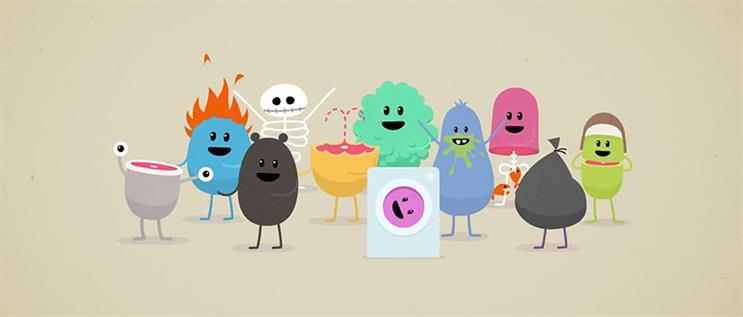Dear dear,
I’ll be home by 7pm. Oh bugger. Make it 8pm, I’ve got something to write for tomorrow. Is it OK if I stay a bit later? Oh. Right. No, it’s cool. I’ll get up early and do it tomorrow morning. Really. It’s fine.
My wife is a consultant paediatrician, and has been considerably more intelligent (and important) than me my whole life. This leads to some rather awkward after-dinner counselling sessions, as we talk each other off the roofs of our respective professions after particularly tough days. (Me: We resigned the client because they didn’t want the singing monkey from the ad to Snapchat without real-time sign-off – I really don’t know what’s going on. Her: Rob, the glue got stuck in the child patient’s brain.) So I always leave the sessions feeling better about things, and her always worse.
But which one of us over the next 50 years will have made a bigger impact on the world, and who would ask such a ridiculous question?
Obviously, she will make more of an impact, I hear you (and all my in-laws) shout. (And now louder) Cannot believe you thought any different, you idiotic, pretentious, jumped-up advertising flower. Cannot believe she married you… pilots, diplomats, judges… she could have had them all. (Any of them, you mean?)
So she saves lives. Let’s assume an average of three a week for the next 50 years. That’s 7,800. And let’s say that, in saving those lives, she also positively affects the families of those children. With an average of three family members, we’re up to 38,000. And then there’s every likelihood she modifies processes in the hospital, which, in turn, saves a few more. Let’s call it a cool 50,000 people over the next 50 years.
Big deal. The last campaign my agency did had more than 50 million media impressions. And I know the guys who did "Dumb ways to die". They must have saved thousands of lives. And the guys who did Nike+ FuelBand, and the Lucky Iron Fish and the LifePaint guys, and I guess the "Chokeables" work for St Johns Ambulance actually saved lives, and all the government work (now you mention it) is actually very effective, and I know the work the healthcare industry does and the millions of lives it affects. Hold on a minute.
So, I’m not even sure I’m joking at this point. The industry has the power to do good. And while we all remain slightly confused about whether we’re supposed to be changing the world, selling stuff or both (you saw the effects of this at Cannes last year), we can’t deny we have the ability to change the world. And we can be sure that, over the next 50 years, doing good by our clients and doing good by our world will become the same thing. Consumers in developed worlds wouldn’t have it any other way.
If you smash all that together, we’ve got a landscape that has never been more exciting. Health, technology, corporate social responsibility and PR, all colliding to define what role brands and companies play on this planet, regardless of their product. A time when and open-source, pizza box-sized IBM Watson supercomputers are linked to hospitals.
Basically, we have the whole world at our disposal and, given the fact that 87% of consumers think that brands have more chance of changing the world than governments, you might say the ball is in our court. What an incredible time to find ourselves at the zenith of art, commerce, business, politics and technology.

The Lucky Iron Fish project addressed iron deficiency in Cambodia and around the world
So what’s holding us back as an industry? Why are our ambitions not being realised? Is it our clients? Is it a mixture of the usual suspects? Complacency, inaction and the commoditisation of creativity? Blunt procurement structures, saturation, self-prophesying research models, and a reality gap between what is possible and what is requested? Or is it just the human nature one? Fear.
Making bravery the only ticket out of here. The past ten years have seen the death of many megalithic brands because they and their agencies had their hands raised to their ears and were going "la la la" trying to ignore what was happening. In times of austerity, it seems natural to be risk-averse. But the riskiest thing possible to do is inaction. It’s riskier to not take risks. The difference between perceived risk and actual risk is crucial. This isn’t recklessness. It makes perfect day-to-day business sense. Like the simple and much-publicised "risk adopting" 70/20/10 split, which creates a sensible portfolio of opportunity. This sort of approach is necessary for brands and agencies to survive.
The world has changed more in the past year than in the past 50,000 years. So we need to be brave with our thinking. These ideas are no longer just ideas for ads, they are ideas for business and products for how we can create a better planet. So embrace them. And go outside your comfort zone today.

Volvo's "LifePaint" by Grey London made cycling safer
Because, if we’re not careful, it will just be the doctors making a real impact on the planet. And we can’t have that, can we?
I’ll be home at 8.15pm, dear.
See you in 50 years.
Rob Doubal is the chief creative officer and co-president at McCann London.


